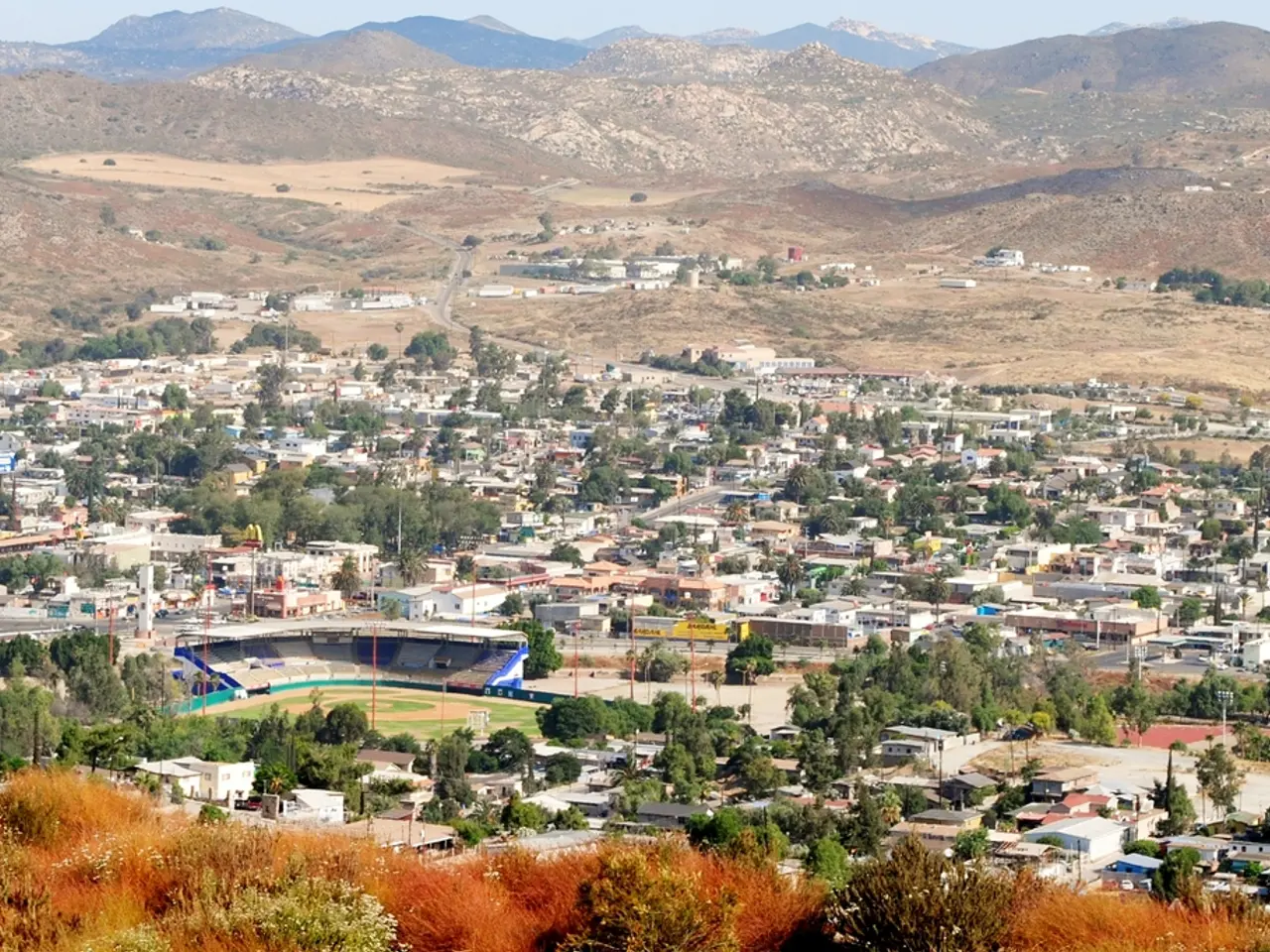In the absence of government intervention, the business sector takes charge: private enterprise spearheading eco-friendly property development
The financial risk strategy of real estate investors and fund managers has undergone a significant transformation in recent years, with a growing emphasis on energy efficiency, water usage, and extreme weather risks. These factors have become crucial components in the decision-making process, influencing the choices made by investors and fund managers.
Recognising Environmental Risks as Financial Risks
Climate change and nature degradation are now recognised as systemic financial risks, particularly for real estate investors. Properties vulnerable to extreme weather events such as floods, hurricanes, and wildfires face physical damage, loss of income, and the possibility of becoming uninsurable. This increases asset impairment risk and potential mortgage defaults.
Energy Efficiency as a Proxy for Environmental Risk
Poor energy performance in properties has been found to correlate with higher default rates, making energy efficiency a key metric in assessing environmental and financial risk. This link between sustainability and credit risk, and investment viability, is increasingly being recognised.
Water Usage and Scarcity Concerns
Water scarcity and related ecosystem degradation pose threats to property values and operational costs, especially in regions prone to drought or water stress. This adds liquidity risk and potential economic slowdowns affecting borrower solvency in portfolios with real estate exposure.
Impact on Investment Strategy and Decision-Making
Investors and fund managers have become more selective and risk-aware, prioritising properties and sectors that offer resilience in environmental and economic uncertainty. For example, resilient sectors include digital infrastructure, multifamily housing, and necessity-based retail, which tend to be less vulnerable to environmental risks and economic volatility.
The decision-making process now involves integrating environmental risk metrics and local operational insights more deeply to anticipate regulatory shifts, insurance costs, and changing market dynamics. A “flight-to-quality” trend is observed where investors optimise portfolios by favouring assets with strong sustainability credentials that reduce exposure to climate-related risks.
Regulatory and Reputational Considerations
Increasing scrutiny and legal risks related to environmental responsibility compel fund managers to embed nature-related due diligence into their risk management frameworks. Failure to address energy and water efficiency or extreme weather risks can lead to reputational damage affecting fundraising and partner relationships.
Long-term Market Implications
The concept of “stranded assets” is increasingly relevant, where assets that do not meet emerging environmental standards or face chronic climate risks may lose value or become liabilities. This pressures investors to proactively adapt their strategies to ensure long-term returns in an uncertain and changing climate landscape.
In conclusion, real estate investors and fund managers have evolved from mostly traditional financial risk assessments to an integrated approach that places significant emphasis on energy efficiency, water usage, and extreme weather risks. This shift leads to more selective, resilience-oriented investment strategies, operational diligence, and a proactive stance on environmental sustainability to safeguard asset values and ensure long-term returns.
- The growing emphasis on energy efficiency, water usage, and extreme weather risks in real estate investments is due to climate change and nature degradation being recognised as systemic financial risks.
- Energy efficiency is a crucial metric in assessing environmental and financial risk as poor energy performance in properties has been found to correlate with higher default rates.
- Water scarcity and related ecosystem degradation pose threats to property values and operational costs, adding liquidity risk and potential economic slowdowns for borrowers with real estate exposure.







